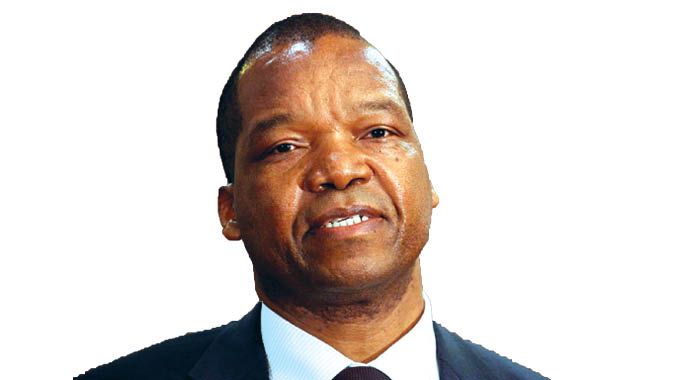‘No devaluation of local currency’

Africa Moyo, Harare Bureau
The Reserve Bank of Zimbabwe has not devalued the local currency as was being claimed in unsourced social media messages circulating.
The apex bank accused the perpetrators of trying to manipulate the real exchange rate set by market forces.
The fake news which started circulating on Thursday said the forex rate was going to start at US$1:$35, almost double the current interbank market rate of US$1:$17,6.
RBZ Governor Dr John Mangudya said on Thursday that the messages were calculated to cause chaos on the market, which has been stable in the last five months as buyers and sellers of foreign currency in the formal sector were using the interbank market more often.
Devaluation of a currency refers to an official and arbitrary resetting of a fixed exchange rate of a country’s currency relative to another currency or group of currencies.
Zimbabwe does not have such fixed rates, and the actual exchange rate is set by market transactions.
The country, like most countries these days, uses a floating exchange rate, making official devaluation or revaluation impossible.
The effective lack of power for the RBZ to set market exchange rates is seen in the totally unregulated and unmanaged black market.
While more volatile than the formal interbank market, the cash-to-cash black market rate is only marginally higher than the interbank rate and the premium for electronic transactions is roughly in line with the premium charged by pavement cash vendors.
Some nervous retailers, mainly fuel dealers, halted sales on Thursday afternoon in case there was anything to the fake news.
But major retailers reckoned the news was fake and carried on with their normal business.
Black market street forex dealers continued in business as buyers, without changing their rates.
In a statement Dr Mangudya said: “The bank would like to advise the public to disregard, with the contempt it deserves, the false and mischievous article circulating on social media suggesting that the bank has devalued the local currency.
“The intention of such disinformation is to cause panic and despondency, and ultimately destabilise the country’s foreign exchange markets through manipulation of the exchange rate.”
Dr Mangudya advised the public that consistent with the Monetary Policy Committee announcement on November 19, last year, the RBZ was, in fact, enhancing the Reuters foreign exchange trading system to ensure efficiency and effectiveness in the allocation of foreign exchange to the productive sectors and enhancing price discovery on the interbank market.
This would make the interbank market more efficient.
Dr Mangudya said engagements had already been done with commercial banks to ensure the smooth implementation of the system.
“Currently, banks are working on a user-test environment to enhance the efficiency of this foreign exchange trading system,” said Dr Mangudya.
The spread of fake news through social media has been on the increase in the last few years, with most messages targeting critical products such as fuel.
The problem with social media news is that there is no effort by those who spread it to check facts, which formal media of all persuasions try to do.
It is easy for people to deliberately spread false news and make mischief to advance their own agendas to manipulate markets or simply because they are mentally deranged.
Such messages have previously caused long fuel queues as motorists feared that either the alleged fuel shortages or fuel price increases would disadvantage them, only to find later that the messages were fake.







Comments